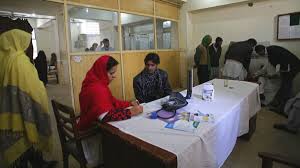Why do Afghans go out of Afghanistan for treatment?
This case has many causes and usually happens in remote areas. The main reasons are lack of access to doctors and medicine, poverty and cultural barriers to use health care and not going to health centers during childbirth are among the factors of maternal mortality in the country. Currently, there is one doctor for every 10,000 Afghans.
Migration outside of Afghanistan has various reasons for many people of this country. Some of the main reasons include:
-
Unstable security: the continuation of armed conflicts and insecurity in some areas of Afghanistan has caused people to flee in search of security and a better life in other countries.
-
Unemployment and poverty: Many people of Afghanistan are facing economic problems, unemployment and poverty. Looking for job opportunities and earning more money, many of them decide to migrate to other countries.
-
War and discrimination: Some people are exposed to serious risks due to racial, ethnic or religious discrimination and are forced to migrate to other countries to protect their lives and security.
-
Better life expectancy: Some Afghan people are looking for better life opportunities and a better future for themselves and their families in other countries, so they decide to migrate.
These are just a few examples of the reasons why Afghan people seek to migrate to other countries.

Afghans seeking treatment in India
Every month, thousands of Afghans go to India for treatment. The lack of health services, low-quality medicines and non-specialized treatments in Afghanistan has led to an increase in the number of Afghan patients visiting Indian hospitals.
Expansion of healthy tourism
Almost in most of the hospitals in New Delhi, Afghan faces are seen. A number of men and women who travel alone to India get interpreters there. Almost all of these Afghans go to the “Lajpat Nagar” area in the suburbs of New Delhi, which is also called “Little Afghanistan” due to the interest of Afghans. In the meantime, the hospitals of this neighborhood are prepared for the crowd of clients.
Ashraf Heydari, the deputy ambassador of Afghanistan in New Delhi, says: “About a thousand Afghans come to India every day. About 70 percent of them come here for treatment.” These people travel to India to treat heart diseases, as well as all kinds of neurological, orthopedic, gynecological problems and other problems.

What should be done to prevent the transfer of patients abroad?
Public health and health safety measures and policies can be strengthened to prevent the transfer of patients abroad. Some possible actions include:
-
Strengthening the domestic health and treatment system: improving various parts of the health care system inside the country, including increasing medical equipment, developing hospitals and health centers, and improving access to medical and pharmaceutical services.
-
Health education: holding educational and awareness programs about appropriate health methods to prevent the transmission of diseases, hand washing, correct use of masks and social distancing.
-
Encouraging vaccination: promoting the general vaccination process in the country to prevent the transmission of vaccinable diseases, including vaccination against diseases such as Covid-19.
-
Implementation of border regulations and controls: increasing border controls and regulations to reduce population movement and transfer of diseases to other countries.
-
International cooperation: cooperation with international health organizations such as the World Health Organization (WHO) for information, information exchange and cooperation in disease prevention and management.
These measures help to reduce the transfer of patients abroad and maintain the public health of the society.
